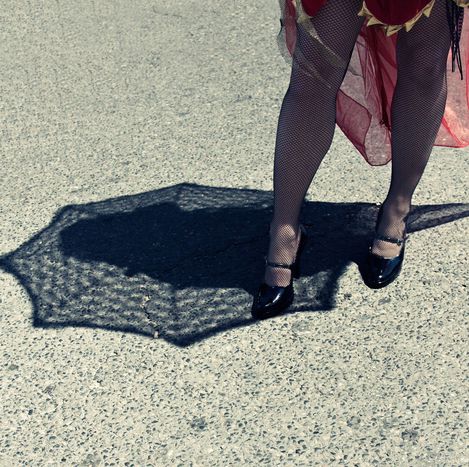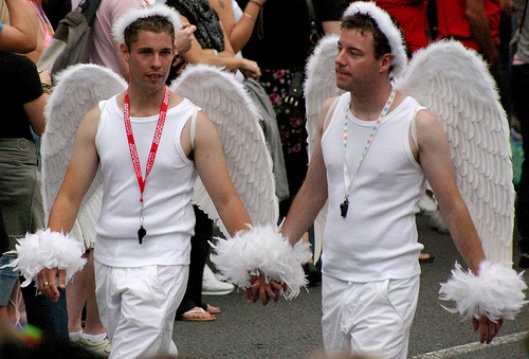
Transsexualism in Spain: fighting discrimination
Published on
Translation by:
 Elaine Jordan
Elaine Jordan
While gays, lesbians and bisexuals have managed to overcome years of rejection by finding their own niche in society, transsexuals are less fortunate as they continue to feel like outsiders. So, what’s it like being a transsexual in Spain?
Spanish society has moved on a great deal over the past 50 years. Changes to the Vagrancy Act in 1954, gave Franco the power to imprison homosexuals and transsexuals where, for years, they were severely maltreated. The Dictator believed that this 'evil' could be wiped out by starving and beating them.
But a lot has changed since then. In legal terms, transsexuals have been able to change their name since 2007, following approval of the law regulating changes to the registration of a person’s gender identity. When a transsexual decides to assume the gender s/he feels most comfortable with, the name can be changed without having to go under the surgeon’s knife. Changing the gender formally registered is subject to several provisos: a medical diagnosis of gender dysphoria as well as evidence the person has been living comfortably with the new gender for at least two years.
Sex change operations
World health organisation (WHO) documentation continues to regard transsexuality as a mental disorder, something transsexual organisations from across the world publicly demonstrated against on 16 October 2009. This seems to indicate that transsexuals must undergo psychiatric assessment in order to qualify for hormonal treatment and/or surgery, but it also implies that social security will cover these costs in some of Spain’s autonomous regions.
 Dr. García-Camba, head of psychiatry at University Hospital 'La Princesa' in Madrid, insists that a team of psychiatrists, psychologists and surgeons must be involved in the gender change process in order to assess if it is a genuine case of transsexuality as opposed to some other form of psychological problem or gender role confusion. They also offer the patient psychological support although in no way should they be trying to offer psychiatric treatment to dissuade the patient from transsexuality. He confirms that the 'psychiatrist needs to show the patient he or she is on their side and that an assessment and diagnosis is there to help them.'
Dr. García-Camba, head of psychiatry at University Hospital 'La Princesa' in Madrid, insists that a team of psychiatrists, psychologists and surgeons must be involved in the gender change process in order to assess if it is a genuine case of transsexuality as opposed to some other form of psychological problem or gender role confusion. They also offer the patient psychological support although in no way should they be trying to offer psychiatric treatment to dissuade the patient from transsexuality. He confirms that the 'psychiatrist needs to show the patient he or she is on their side and that an assessment and diagnosis is there to help them.'
A trans-movement is fighting to get transsexuality removed as a mental illness although it does recognise that in many cases this speeds up access to public health services. For Sonia Fernández, head of the 'trans' branch of Madrid’s gay group, COGAM, achieving gender change is important, just as, she explains, 'the public health service doesn’t just deal with illness, it also deals with conditions, not considered a disorder, such as pregnancy.' Nevertheless, she believes there are more pressing matters such as introducing medical cover on a national level.
2010 is the year for a national focus on the rights of the transsexual. The LGBT (lesbian, gay, bisexual and transgender) is campaigning widely for this cause. Gay Pride’s slogan for 2010 will be 'a year for change', its aim being to give transsexuals a voice. As a society we still have a tendency to associate transsexuals with the world of prostitution and cabaret, prejudices which these groups are working hard to eliminate.
Shunned by society
 'As transsexuals, we are born into the wrong society; not the wrong body.' According to Lizethe Alvarez Echeverri, a Columbian transsexual now settled in Madrid, these words show the extent to which transsexuals are suffering as a result of society’s rejection. The majority have to face lack of understanding from family and friends once they make that decision to change their birth gender. Some are forced to move city or even leave the country, something which is made more difficult with only a very basic education. Many give up on their secondary education, forced to abandon their studies as a result of discrimination.
'As transsexuals, we are born into the wrong society; not the wrong body.' According to Lizethe Alvarez Echeverri, a Columbian transsexual now settled in Madrid, these words show the extent to which transsexuals are suffering as a result of society’s rejection. The majority have to face lack of understanding from family and friends once they make that decision to change their birth gender. Some are forced to move city or even leave the country, something which is made more difficult with only a very basic education. Many give up on their secondary education, forced to abandon their studies as a result of discrimination.
However, Sonia Fernández explains that she feels she has fitted into society more since starting to live as a woman. 'I didn’t have to leave my neighbourhood or city. I didn’t even have to move jobs. I feel much more at ease socially now. I used to be a recluse before changing gender. I wouldn’t leave the house, I didn’t go to work and I spoke to nobody.' Sonia believes that 'transphobia' does exist but it is often a result of ignorance rather than malice. 'Sometimes I’d be unable to collect post because I’d be told the person on my photo ID was a man and they wouldn’t believe it was me. I believe you can either approach this sort of situation defensively or take a more upbeat approach. I tend to opt for the latter.'
Sonia realised she was different to other children at the age of five although at that stage she was not sure exactly why she was different. Her parents took her to see endless psychologists during her teens until eventually one of them said, 'your son isn’t homosexual, rather, he considers himself to be a girl.' That is how she found out what was happening to her although it was many years later that she decided to change gender.
According to a study published by the foundation for gender identity in 2004, there are 31, 938 transsexuals in Spain although only 2, 826 are diagnosed as such. This suggests that only 10% accept their condition whereas the remainder hide it for fear of rejection, discrimination at work or simply because they find it too difficult to come to terms with. There is still a long way to go before transsexuals can lead a normal life. They are already taking the first step, i.e. being faithful to how they feel and challenging the daily norms imposed upon them by society. The next step is one for society to take, i.e. understanding, accepting and opening up to a reality that is within touching distance, albeit, one that still feels rather strange.
Translated from Ser transexual en España, la lucha contra la discriminación


